In my work with schools and districts, I hear a lot of talk about the need for leaders to “have a vision.” Central office folks often decry the absence of vision among principals they support, and teachers clamor for a “leader with vision.” But what does this really mean? What is the purpose of creating a leadership vision, and why does it matter?
Roland Barth defines leadership as “making happen what you believe in.”1 This happens through both symbolic and expressive leadership behaviors. Symbolically, leaders model and focus us on what is most important–creating a compelling narrative and storyline. On the expressive side, leaders actively engage with all stakeholders to crystallize, communicate, and foster dialogue around what really matters for their community.

Superintendent Chris Funk and Emerging Leader Lyra Hua discuss an excerpt of The Listening Leader.
In the best schools, this focus on meaning and narrative (not just test scores) leads to the development of a mission and vision that are grounded in shared beliefs and values. According to Barthes, the visioning process itself generates commitment to a collective purpose and the momentum to pursue it. But it begins with a leader who has the clarity, courage, and moxie to articulate a vision.
I recently took up Barth’s challenge to try to give voice to my own leadership vision. (See guiding questions below.) While I know that visions evolve over time, what I found heartening is how constant my core values have been, even after 22 years in education! There a few things I deeply believe in, and I do my best work when I am living and breathing those things. I struggle the most when I feel disconnected from these values.
Here are some core values this exercise surfaced for me:
- Student voice is the most important data in the school building.
- We can’t address inequity if we won’t name it.
- Shifts in culture precede shifts in outcomes.
- Shifts in relationships precede shifts in practice.
- Listening is the heart of a healthy school culture.
- Adult learning must embody the pedagogy we claim to value.
From this reflection, I drafted a personal leadership vision.
I aspire to be a change agent who cultivates schools rooted in the values of love, equity, and critical pedagogy. I envision an ever-expanding network of schools in which adults and students engage in compelling problems of learning, listen deeply to each other, and find the courage to explore who they are and the impact they want to have on the world.
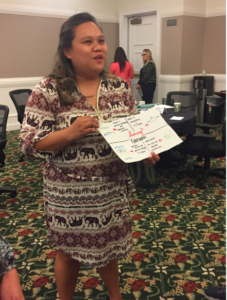
Emerging Leader Honey Gubuan shares her core memory map (see page of The Listening Leader for a description), which is a scaffold toward the personal leadership vision.
This year, I was honored to design a year-long course of study called the Emerging Leaders Program in partnership with Superintendent Chris Funk and Director of Professional Learning Teresa Marquez from East Side Union High School District in San Jose, California. We led our 26 emerging leaders through Barthes’ exercise in preparation for their final presentations of learning and Chris and Teresa agreed that I could share their visions with you as well.
I aspire to be a leader who challenges the status quo, cultivates shared leadership and provides the opportunity for students and staff to thrive. My vision is that every school in our district provides a pathway of hope and inspiration for learning and creativity to prosper for each person in our system.
–Superintendent Chris Funk, East Side Union High School District
I am committed to becoming a leader and advocate who works collaboratively with others to put in place the conditions needed for students, parents, and staff to thrive. My vision is that we create environments of learning for students, staff, and parents where all voices are heard, innovation and inquiry are nurtured, and opportunities are made accessible to all.
–Teresa Marquez, Director of Professional Development and Curriculum, East Side Union High School District
What are your thoughts about this process? If you do the exercise and are willing to share your draft vision, please email it to me: with permission to share. The more models, the better!
Visioning Prompts (adapted from Roland Barth)Phase I: Free write around values and beliefs.What do I deeply value? What are my beliefs?
Phase II: Draft a personal leadership vision.My vision—a desired future state—entails: |
…
1. Personal Vision Of a Good School. 1990. Phi Delta Kappan 71(7) p.512-516.

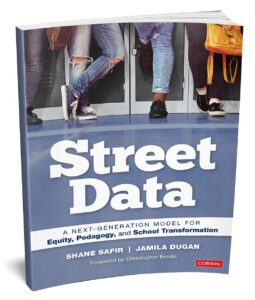 Enter your email here and get a free copy of the first chapter of Street Data!
Enter your email here and get a free copy of the first chapter of Street Data!
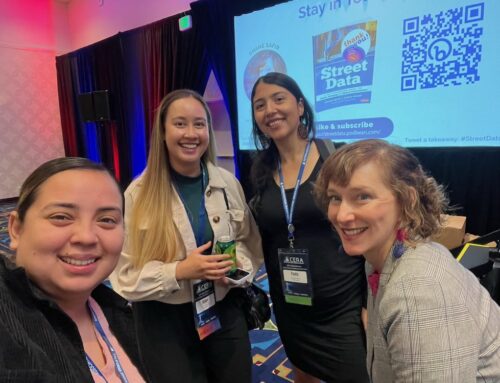
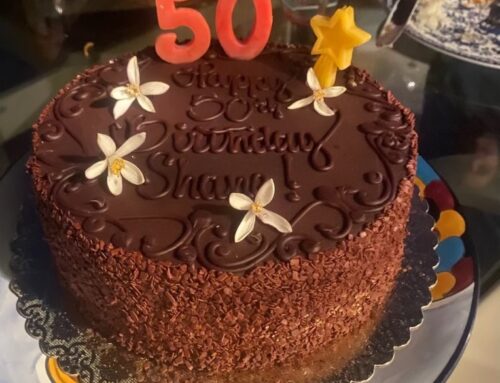
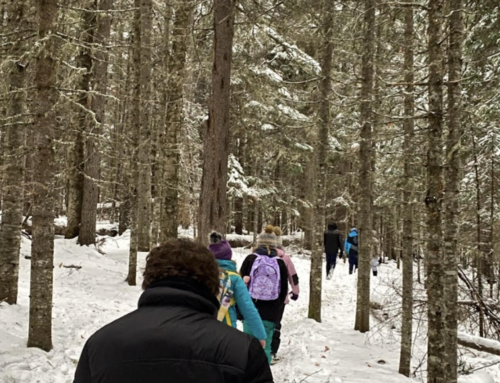
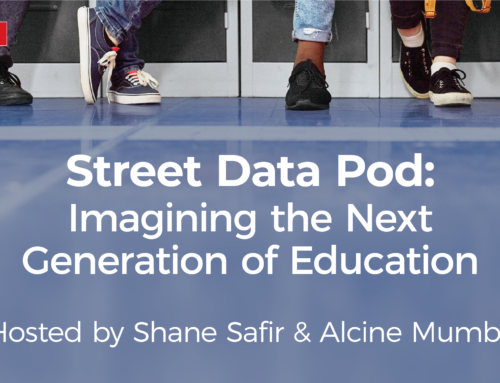

Leave A Comment
You must be logged in to post a comment.